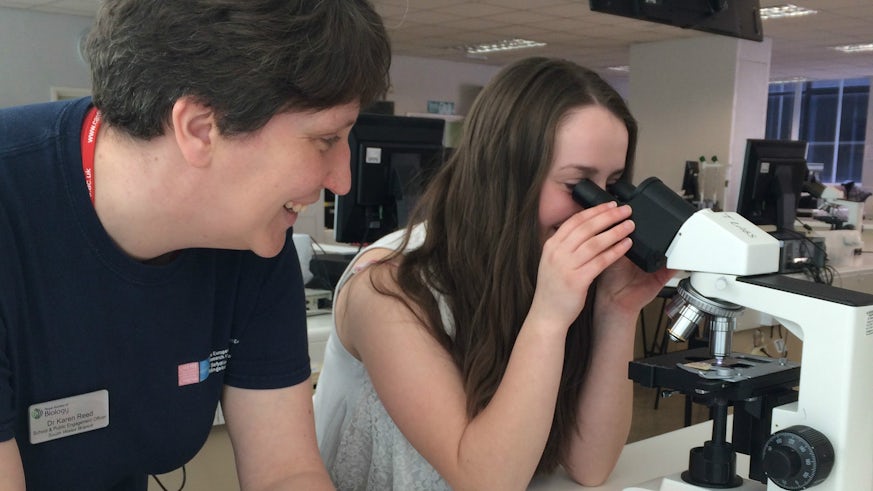School project inspires young scientists
22 April 2016

Institute Research Associate Dr Karen Reed continues to inspire and educate the next generation of scientists through an on-going engagement project with her old school, Pencoed Comprehensive.
The project began in 2010 with funding from the Royal Society, and it has continued thanks to a variety of funding sources.
The latest engagement event saw 17 Year 12 pupils visiting Cardiff University for the day to gain an insight into cancer research, to learn more about cancer stem cells and the role they play in the development of the disease, and to try their hands at some practical experiments.
During the day, the pupils explored the cellular processes of transcription and translation using DNA models and gained an appreciation of why mutations in the DNA can result in tumour formation. They also undertook microscopic analysis of samples to categorise them according to various phenotypic parameters, and sorted paper cells based on cell surfaces markers, demonstrating an important technique that researchers carry out in the lab using sophisticated equipment such as FACS cell sorter machines.
Dr Reed also showed an animation, which helped the students to visualise how and why cancer stem cells are responsible for the development and spread of cancerous tumours.
One of the pupils commented - “It really helped to consolidate what we have already learnt during AS biology”, whilst another said - “The day gave me a real insight into where biology can take you.”
Dr Reed said, “It is a real privilege to undertake outreach work of this nature - to share my experiences with individuals at the very start of their career journeys, and to demonstrate the importance of cancer research.
The possibility of inspiring future researchers is incredibly rewarding. Last year I was delighted when a past pupil of Pencoed Comprehensive, who I met in 2012 and is now studying at Oxford Brooks University, approached me to request a professional training year placement within our research group. This really highlighted the importance and value of providing high quality engagement activities to the next generation of researchers.”